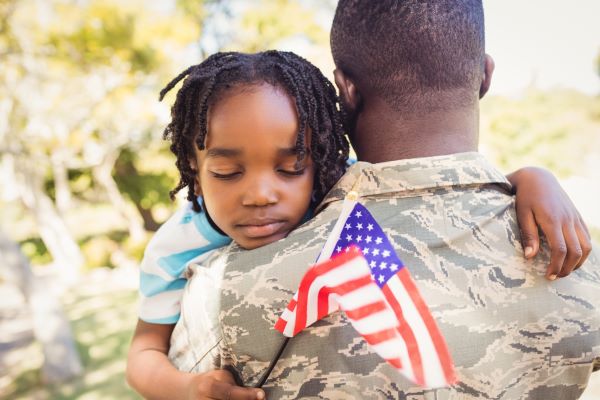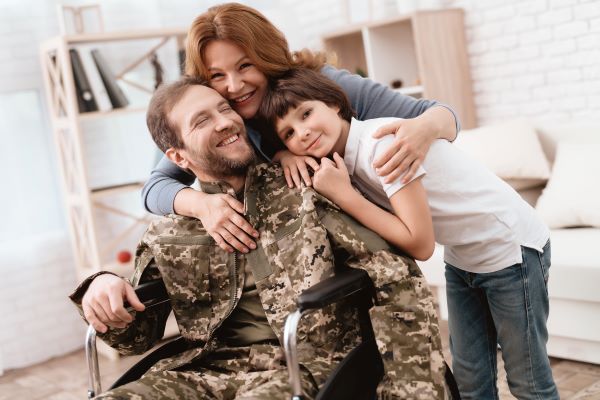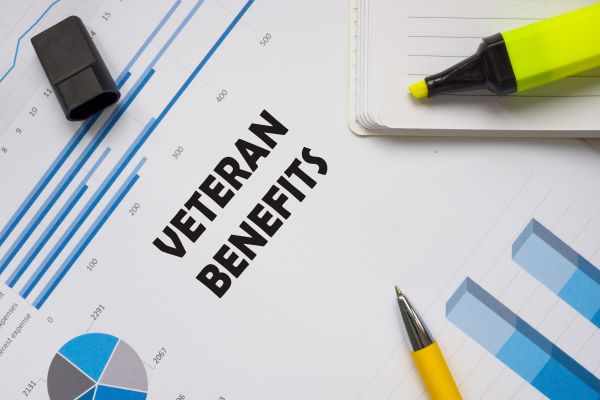A nationwide network of VA offices assists disabled veterans with understanding and accessing government benefits.…

Veterans and Their Survivors Are Eligible for Certain Financial Benefits
Understanding the many veteran benefits programs offered by the Department of Veterans Affairs (VA) is essential for anyone who is a veteran or caring for one. Often, financial support is available to veterans, their spouses, and survivors. Even if you’ve never made a claim made for veteran benefits before, you may qualify for financial help based on your current age, physical condition, or income.
Medicare and VA Benefits
Even if you or the veteran you care for qualify for Medicare, there can be advantages to choosing VA benefits for health care coverage. For example, Medicare doesn’t cover routine dental, vision, or hearing visits, and they don’t cover long-term in-home or nursing home residential care. The costs of VA copays and deductibles are generally lower than Medicare, including prescription drugs. Some veterans can qualify for both Medicare and VA health coverage which may also extend to family members.
Service-Connected Disabilities
Many financial benefits available through the VA are offered through service-connected disabilities, including physical, mental, or emotional conditions which limit or preclude a veteran from performing various normal daily activities. A veteran doesn’t have to be disabled while in the military to qualify for these benefits. Service-connected disabilities can begin during military service and only start to show as the veteran ages. Military service must be the original cause that aggravated the condition.
The VA Rating System
A condition that becomes disabling later in life can make a veteran eligible for a monthly disability compensation payment. When the VA reviews an applicant’s request for compensation, it will assign a rating to the disabling condition beginning at 10 percent or more. The rating is in 10 percent increments. Veterans who are housebound or require aid and attendance (regular in-home care) can receive higher monthly amounts. Older veterans with a 30 percent or higher rating can have their spouse qualify for additional monthly benefits as well.
VA Loans and Grants
The VA can also help veterans with service-connected disabilities by supplying loans or grants to modify a home, whether it’s the veteran’s home or the home of a family member where the veteran lives, through the Specially Adapted Housing (SAH) grants program. Special car modifications are available through a similar program. The VA also offers several types of loans and loan guarantees to aid veterans in purchasing or refinancing a home, townhome, or condominium.
Veterans Pension
If a veteran (65 or older) has a low income and has had 90 or more active days of military service with at least one of those days during a period of war (World War II, Korean War, Vietnam War, and the Persian Gulf War) they qualify for a VA pension even if the veteran was not in combat. If a wartime veteran or a surviving spouse requires regular care, the amount paid can be over $2,046 monthly in tax-free income in 2023. However, there are specific financial and medical requirements for this benefit.
The VA pension benefit eligibility requirements include a 3-year lookback period for asset transfers that began in 2018. Discuss this with an elder law attorney specializing in VA planning to avoid penalties and ensure your claim is filed properly the first time. Minor mistakes can cause long delays in receiving your benefits.
Applying for or assisting a loved one in the application process for VA benefits can help them improve their quality of life or benefit their survivors. While there are toll-free numbers and websites to inform claimants, the procedures are complicated and can be confusing. Our elder law attorneys are experienced in veterans planning and would be happy to discuss your situation and help you understand your options. If you would like to discuss your particular situation, please contact our New York office or call us at 607-271-9270. We look forward to the opportunity to work with you.



